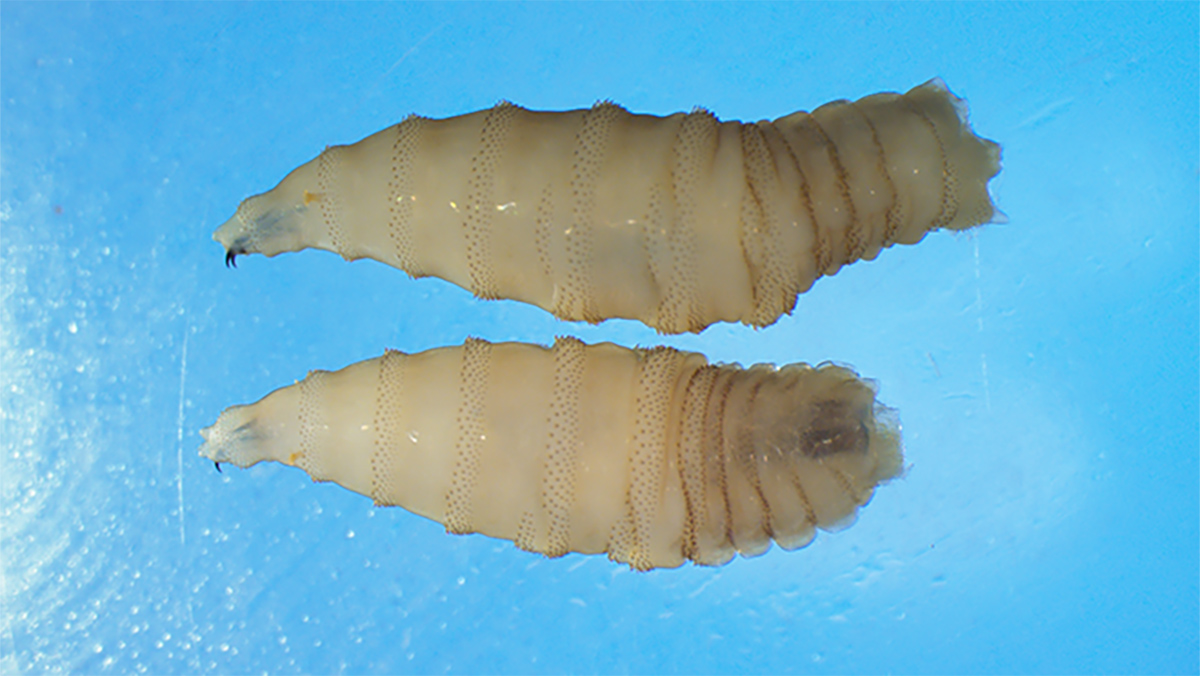Top Stories
US Confirms First Human Case of Flesh-Eating Screwworm

URGENT UPDATE: The US has reported its first confirmed case of the flesh-eating New World screwworm in a human, triggering immediate concern among health officials and the beef industry. The case, confirmed on August 4, 2023, involves a patient who recently traveled to El Salvador, according to the US Department of Health and Human Services (HHS) and the Centers for Disease Control and Prevention (CDC).
The New World screwworm is a parasitic fly that lays eggs in the wounds of warm-blooded animals, leading to severe infestations that can be fatal if untreated. The larvae burrow into living flesh, feeding in a manner reminiscent of a screw being driven into wood. This alarming development comes at a time when the beef industry is already on high alert due to potential outbreaks in Texas and other states.
Officials are investigating the case, which was initially reported by the Maryland Department of Health. HHS spokesman Andrew G. Nixon confirmed the screwworm’s presence but stated that the risk to public health remains “very low.” However, discrepancies in reporting have left some industry sources rattled. While HHS confirmed the case from El Salvador, other reports indicate a potential link to a traveler from Guatemala.
The beef industry faces significant economic risks with estimates suggesting a screwworm outbreak could result in losses of up to $1.8 billion in Texas alone due to livestock deaths and treatment costs. Following this announcement, Brooke Rollins, US Department of Agriculture Secretary, recently visited Texas to unveil plans for a facility aimed at producing sterile flies to combat this pest.
Despite the concerning nature of this case, screwworms are primarily a threat to cattle and wildlife, rarely infesting humans. Treatment typically involves the removal of larvae and thorough disinfection of wounds. Early intervention can lead to a positive outcome, but the treatment process is extensive and costly.
In an email sent last week, an executive from the industry group Beef Alliance informed livestock sector members of the confirmed case, emphasizing confidentiality due to patient privacy laws. Although the individual was treated, further details remain scarce, prompting concerns over market impacts as awareness of the situation expands beyond industry insiders.
Veterinary officials, like Beth Thompson, South Dakota’s state veterinarian, have expressed frustration over the lack of communication from the CDC regarding the case. There is a heightened sense of urgency as the beef community looks for clarity and preventive measures to avert a larger public health crisis.
This latest development underscores the importance of vigilance in monitoring and addressing potential outbreaks. With the screwworm previously eradicated from the US in the 1960s, officials are reminded of the persistent risk posed by similar invasive species as they continue to adapt and re-emerge.
Stay tuned for further updates as health authorities investigate this case and implement preventive measures to protect both public health and the livestock industry.
-

 Top Stories3 months ago
Top Stories3 months agoTributes Surge for 9-Year-Old Leon Briody After Cancer Battle
-

 Entertainment4 months ago
Entertainment4 months agoAimee Osbourne Joins Family for Emotional Tribute to Ozzy
-

 Politics4 months ago
Politics4 months agoDanny Healy-Rae Considers Complaint After Altercation with Garda
-

 Top Stories4 months ago
Top Stories4 months agoIreland Enjoys Summer Heat as Hurricane Erin Approaches Atlantic
-

 World5 months ago
World5 months agoHawaii Commemorates 80 Years Since Hiroshima Bombing with Ceremony
-

 Top Stories3 months ago
Top Stories3 months agoNewcastle West Woman Patricia Foley Found Safe After Urgent Search
-

 Top Stories5 months ago
Top Stories5 months agoFianna Fáil TDs Urgently Consider Maire Geoghegan-Quinn for Presidency
-

 World5 months ago
World5 months agoCouple Convicted of Murdering Two-Year-Old Grandson in Wales
-

 World5 months ago
World5 months agoGaza Aid Distribution Tragedy: 20 Killed Amid Ongoing Violence
-

 World5 months ago
World5 months agoAristocrat Constance Marten and Partner Convicted of Infant Murder
-

 Top Stories4 months ago
Top Stories4 months agoClimbing Errigal: A Must-Do Summer Adventure in Donegal
-

 Top Stories4 months ago
Top Stories4 months agoHike Donegal’s Errigal Mountain NOW for Unforgettable Summer Views









